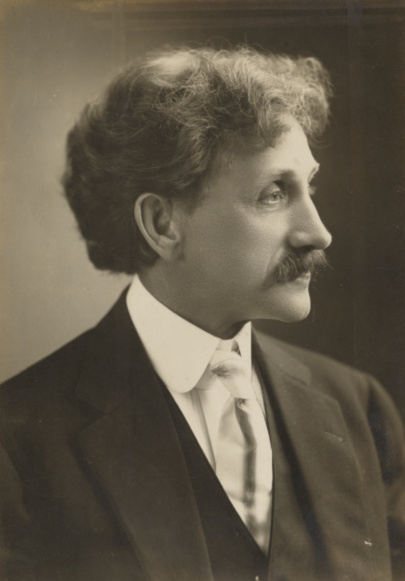Zdroj: The New Ethics (1907), Flashlights on Human Progress, p. 198
J. Howard Moore: Citáty anglicky
We have no ethical relation to the clod, the molecule, or the scale sloughed off from our skin on the back of our hand, because the clod, the molecule, and the scale have no feeling, no soul, no anything rendering them capable of being affected by us [...] The fact that a thing is an organism, that it has organisation, has in itself no more ethical significance than the fact that it has symmetry, or redness, or weight.
Zdroj: The New Ethics (1907), The Survival of the Strenuous, p. 169
Zdroj: The New Ethics (1907), The Survival of the Strenuous, p. 167
Zdroj: The New Ethics (1907), The Survival of the Strenuous, p. 164
Zdroj: The New Ethics (1907), The Perils of Over-population, pp. 161–162
Zdroj: The New Ethics (1907), The Perils of Over-population, p. 155
Zdroj: The New Ethics (1907), The Perils of Over-population, p. 153
Zdroj: The New Ethics (1907), The Perils of Over-population, pp. 149–150
Zdroj: The New Ethics (1907), Human Attitude Toward Others, p. 53
Zdroj: The New Ethics (1907), Human Attitude Toward Others, p. 44
Zdroj: The New Ethics (1907), The Nature of Opinion, pp. 13–14
"Conclusion", p. 328
The Universal Kinship (1906), The Ethical Kinship
"Conclusion", p. 328
The Universal Kinship (1906), The Ethical Kinship
Pity the tortoise, the katydid, the wild-bird, and the ox. Poor, undeveloped, untaught creatures! Into their dim and lowly lives strays of sunshine little enough, though the fell hand of man be never against them. They are our fellow-mortals. They came out of the same mysterious womb of the past, are passing through the same dream, and are destined to the same melancholy end, as we ourselves. Let us be kind and merciful to them.
"Conclusion", pp. 327–328
The Universal Kinship (1906), The Ethical Kinship
"Conclusion", p. 327
The Universal Kinship (1906), The Ethical Kinship
"Conclusion", pp. 324–325
The Universal Kinship (1906), The Ethical Kinship
The Life Process is the End—not man, nor any other animal temporarily privileged to weave a world's philosophy. Non-human beings were not made for human beings any more than human beings were made for non-human beings. Just as the sidereal spheres were once supposed by the childish mind of man to be unsubstantial satellites of the earth, but are known by man's riper understanding to be worlds with missions and materialities of their own, and of such magnitude and number as to render terrestrial insignificance frightful, so the billions that dwell in the seas, fields, and atmospheres of the earth were in like manner imagined by the illiterate children of the race to be the mere trinkets of men, but are now known by all who can interpret the new revelation to be beings with substantially the same origin, the same natures, structures, and occupations, and the same general rights to life and happiness, as we ourselves.
Zdroj: The Universal Kinship (1906), The Ethical Kinship, "Conclusion", p. 324
"Ethical Implications of Evolution", p. 323
The Universal Kinship (1906), The Ethical Kinship
"Ethical Implications of Evolution", pp. 322–323
The Universal Kinship (1906), The Ethical Kinship
"Anthropocentric Ethics", p. 319
The Universal Kinship (1906), The Ethical Kinship
"The Psychology of Altruism", p. 314
The Universal Kinship (1906), The Ethical Kinship
"The Psychology of Altruism", p. 309
The Universal Kinship (1906), The Ethical Kinship
"The Psychology of Altruism", p. 308–309
The Universal Kinship (1906), The Ethical Kinship
We never take the time to put ourselves in the places of our victims. We never take the trouble to get over into their world, and realise what is happening over there as a result of our doings toward them. It is so much more comfortable not to do so—so much more comfortable to be blind and deaf and insane.
"The Psychology of Altruism", p. 304
The Universal Kinship (1906), The Ethical Kinship
"The Ethics of Human Beings Toward Non-human Beings", pp. 281–282
The Universal Kinship (1906), The Ethical Kinship
"The Ethics of Human Beings Toward Non-human Beings", p. 279
The Universal Kinship (1906), The Ethical Kinship
"The Ethics of Human Beings Toward Non-human Beings", pp. 278
The Universal Kinship (1906), The Ethical Kinship
"The Ethics of Human Beings Toward Non-human Beings", pp. 276–277
The Universal Kinship (1906), The Ethical Kinship
"The Ethics of Human Beings Toward Non-human Beings", p. 276
The Universal Kinship (1906), The Ethical Kinship
Zdroj: The New Ethics (1907), The Thesis of the New Ethics, p. 16
